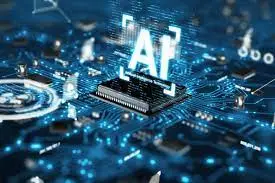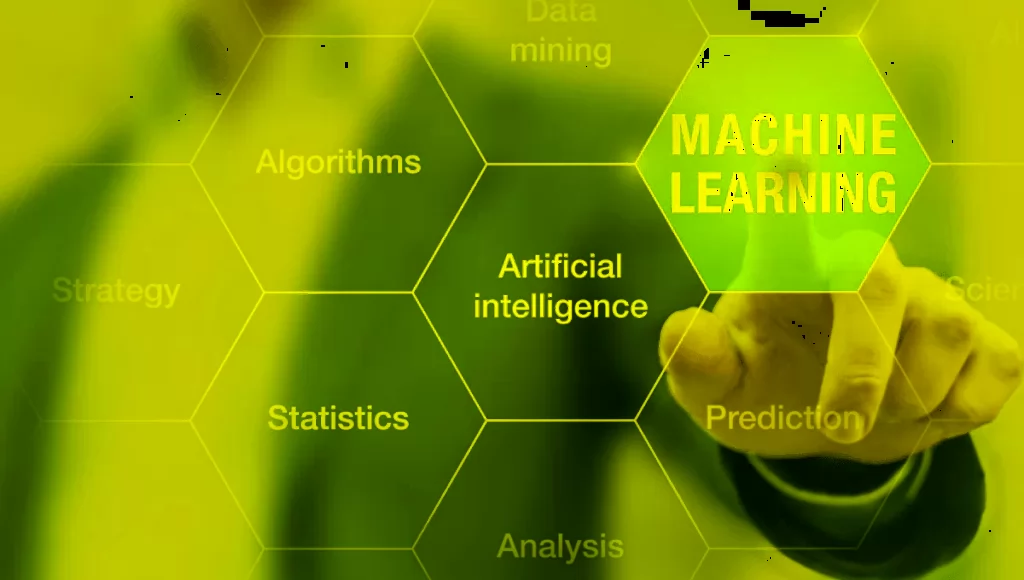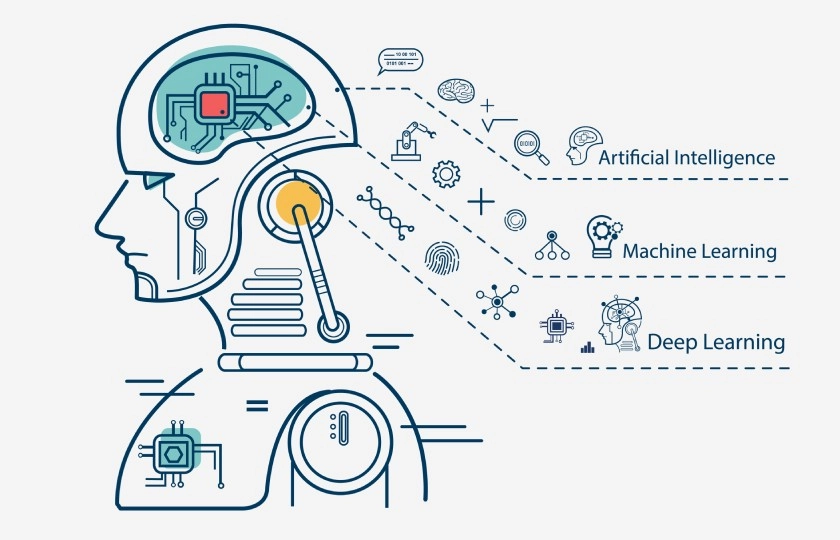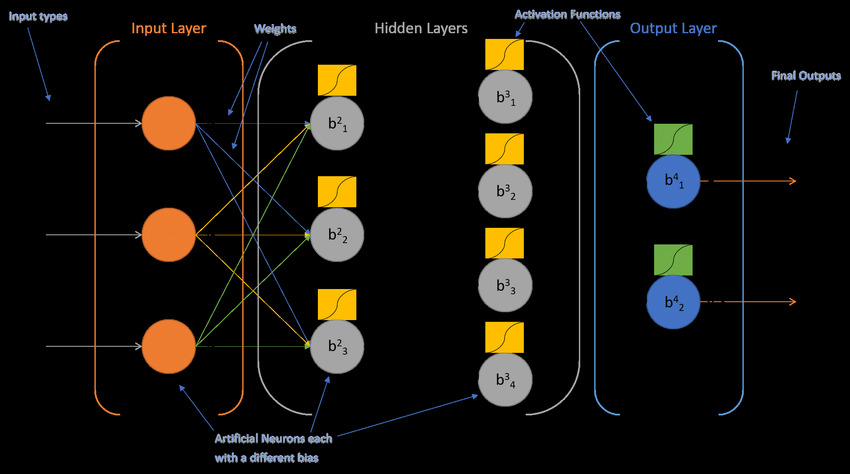Introduction
In an era of digitalization and availability of internet, the world is moving towards artificial intelligence, internet of things and big data analytics. Every sphere of life, medicine, manufacturing, education, finance, construction and the like are transforming into computer-based processes. This paper is a study on the use of Artificial Intelligence in Marketing of products. It aims at a conceptual analysis of the past, present and future of marketing in the light of Artificial Intelligence.

The development of AI
Artificial intelligence (AI) is a concept that has been taking over the world in all spheres, be it medicine, construction, education, business, entertainment or marketing. We live in a world were data collection, analysis and inference are as
important as breathing in this world. Every data big or small is stored up and used by businesses. Take a classical example of a user of Instagram. The reels and posts watched by the user on a particular Instagram ID is captured and stored. The next time the user opens his or her Insta page the posts relevant to what they viewed previously appear at the top. Similarly, if the user has scrolled on a particular promotional post, the AI software captures this data and floods similar promotions on the page. All this is done within a nano second. This is the strength of AI.
recognizing artificial intelligence
AI is the affordance of human intelligence to machines. The concept has been in existence since antiquity, and rigorous AI research can be traced back to 1950s, when Alan Turing established the famous Turing Test, stating “I propose to
consider the question, ‘Can machines think?’” (Turing, 1950), and John McCarthy coined the term Artificial Intelligence in 1955 when he organized the 1956 Dartmouth Summer Research Project on Artificial Intelligence. (Ma & Sun, 2020). Artificial intelligence derives from information technology. It is often used interchangeably with notions like automation or robotization. It also tends to be confused with machine learning or algorithm application. According to Oxford Dictionary, AI is “the theory and development of computer systems able to perform tasks normally requiring human intelligence, such as visual perception, speech recognition, decision-making, and translation between languages” (“artificial intelligence | Definition of artificial intelligence in English by Oxford Dictionaries”, 2019). (Jarek & Mazurek). Technology is defined as the integration of systems with concrete computational abilities, functioning
through a web of hardware and software alignments towards achieving desired solutions. Further technology can be stated as the application of science in promoting ease of performance at organizations level and dominance at
competitive platforms (Freeman, 1989 & Vishnoi & Bagga, 2019).

Machine Learning
When digital computers were first developed in the 1940s and 1950s researchers wrote a number of programs, these programs could play chess, checkers and prove theorems. In the 1960s and 1970s, AI explored various ways to
represent problems by developing different search techniques and general heuristics, this enabled development of programs used to solve algebraic word problems and symbolic integration (Adetiba, et.al). The use of algorithms and
development of software such as JAVA, Java script and Python have made life much easier and computers smarter. Artificial intelligence (AI) has received increased attention in recent years. Innovation, made possible through the
Internet, has brought AI closer to our everyday lives. These advances, alongside interest in the technology’s potential socio-economic and ethical impacts, bring Al to the forefront of many contemporary debates. Industry investments in
Al are rapidly increasing, and governments are trying to understand what the technology could mean for their citizens.

In-depth Learning
Artificial intelligence is the ability to transfer human intelligence to machines to perform tasks ranging from simple to complex. The goal of artificial intelligence is for it to learn, reason, and carry out tasks. As technology advances, previous
definitions of artificial intelligence become obsolete. Artificial Intelligence is based on three basic concepts. Machine learning, deep learning, and neural networks are the three fundamental concepts (Wisetsri, et.al,2021)
Huge Data
Many technologies can perform repetitive tasks, but they cannot think for themselves. They are unable to think outside of the box. Machine learning, on the other hand, is a subset of AI that aims to enable machines to learn a task without
the need for pre-existing code. Machines are fed a variety of problems and examples in order to learn how to perform specific tasks. Machines learn and adapt their strategy to independently execute the activities as they work through
these problems and examples. An image-recognition machine, for example, could be given millions of images to analyse. After countless permutations, the machine learns to recognise patterns, shapes, faces, and other objects. (Wisetsri, et.al,
2021

Synthetic neural networks
Deep Learning is a class of machine learning techniques that exploit many layers of non-linear information processing for supervised or unsupervised feature extraction and transformation, and for pattern analysis and classification
(Deng& Yu). Deep Learning is a new area of Machine Learning research, which has been introduced with the objective of moving Machine Learning closer to one of its original goals: Artificial Intelligence. Deep Learning is about learning
multiple levels of representation and abstraction that help to make sense of data such as images, sound, and text.
artificial intelligence in marketing
Contemporary business ecosystems are centred around technology resource, data resource and human resource. Accordingly, organization departments and processes presently are generating huge volumes of data which is referred
to as Big Data. As business processes are growing wider and more complex and organizational-friendly technology becoming ingrained into the mainstream operations (Hurwitz, Nugent, & Halper, 2013) data collection tools are almost
conquering every domain of industrial concerns (Vishnoi & Bagga, 2019).
Future of artificial intelligence in marketing
Artificial neural networks are a technology based on studies of the brain and nervous system. Many different types of ANN applications have been developed in the past several years and are continuing to be developed. Industrial applications exist in the financial, manufacturing, marketing, telecommunications, biomedical, and many other domains.
Conclusion
Internet social media and mobile devices have dramatically increased the interactions between firms and consumers, with the information encoded in rich media formats such as text, image, and video. It is imperative for firms to understand consumer perceptions and preferences and obtain brand positioning insights based on this rich media content (Ma & Sun,2020). The ever-increasing amount of consumer data available online, in big data systems or mobile devices, makes AI become an important ally of marketing, as it is based on data analysis in almost every area of its application. Marketing takes advantage of data to a large extent – from consumer needs research, market analyses, customer insights, and competition intelligence through pursuing activities in various communication or distribution channels to measuring the results and effects of the adopted strategies. Marketing becomes a natural beneficiary of developing information technology (Mazurek, 2011a, 2011b, 2014)